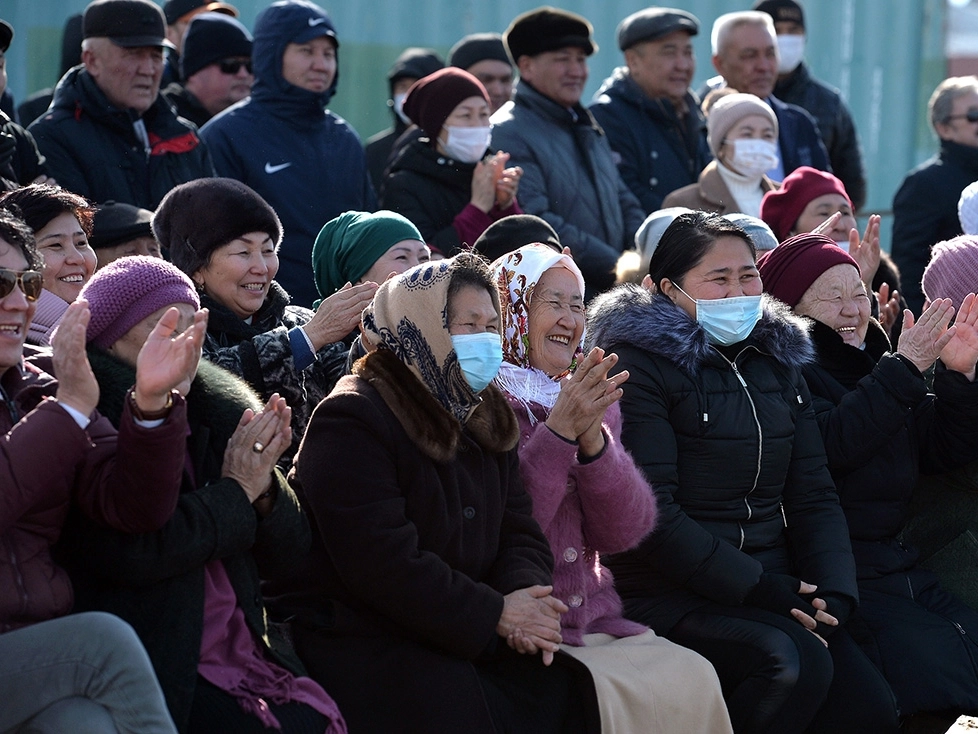Kazakhstan, endowed with vast, exploitable hydrocarbon and mineral resources, has become an upper middle-income economy, according to the World Bank; its politics, firmly authoritarian, have been (with one big exception) generally stable.
Kyrgyzstan, on the other hand, never emerged from the poverty of those early independence years. A large portion of the workforce toils abroad. Public services are low-quality or non-existent. And as for stability: Three times it has seen presidents chased out by street demonstrators, most recently in 2020.
Yet it is Kyrgyzstan where people are happier.
A new paper in the peer-reviewed Journal of Happiness Studies by Dina Sharipova and Alma Kudebayeva, a political scientist and an economist from two of Kazakhstan’s top universities, examines why.
Sharipova and Kudebayeva use data from two successive waves of the longitudinal World Values Survey to compare how different groups in these countries rated their own wellbeing in 2011 and 2018. As a proxy for happiness, respondents ranked between one and 10 their answer to the question: “All things considered, how satisfied are you with your life as a whole these days?”
Between 2011 and 2018, the overall satisfaction in Kazakhstan fell and in Kyrgyzstan it rose – by statistically significant margins in both countries.
By disaggregating the explanatory variables included in the survey and controlling for demographics, the authors offer some reasons why.
In Kazakhstan, the creeping overall dissatisfaction with life was tied to financial wellbeing, possibly because of successive devaluations of the tenge between the two waves. Yet there is something else, even among those who reported satisfaction with their financial situation: a decline of the freedom of choice and control over their lives, which the authors interpret as political choice. “People perceive that they have less choice in their lives in 2018 than they had in 2011 and this, in turn, negatively affects their well-being,” Sharipova and Kudebayeva write of the Kazakh respondents. “Our study has shown that freedom of choice can be an important predictor of well-being in authoritarian states.”
In Kyrgyzstan, in 2018, more people said they were satisfied with their freedom of choice and more reported being financially secure than in 2011 (even though the survey shows household incomes slightly fell). This, which correlated with a higher overall life satisfaction rating, “could be explained by the relative economic growth in the country during the period and more political rights and freedoms.” Also, Kyrgyzstan in 2011 had just suffered unprecedented political and ethnic violence; by 2018, the unrest had not returned, offering one possible explanation for the increase in positive attitudes.
There are other data points that observers of Central Asia will find interesting. In both countries, trust in other people fell (question: “Generally speaking, would you say that most people can be trusted, or that you need to be very careful in dealing with people?”). In Kyrgyzstan, divorce rose significantly (and was positively correlated with wellbeing). And in both, the data show that people who participate in social groups (by belonging a religious group, a labor union, or a sports club) were more likely to rate an improvement to their overall wellbeing.
Source: Eurasianet


